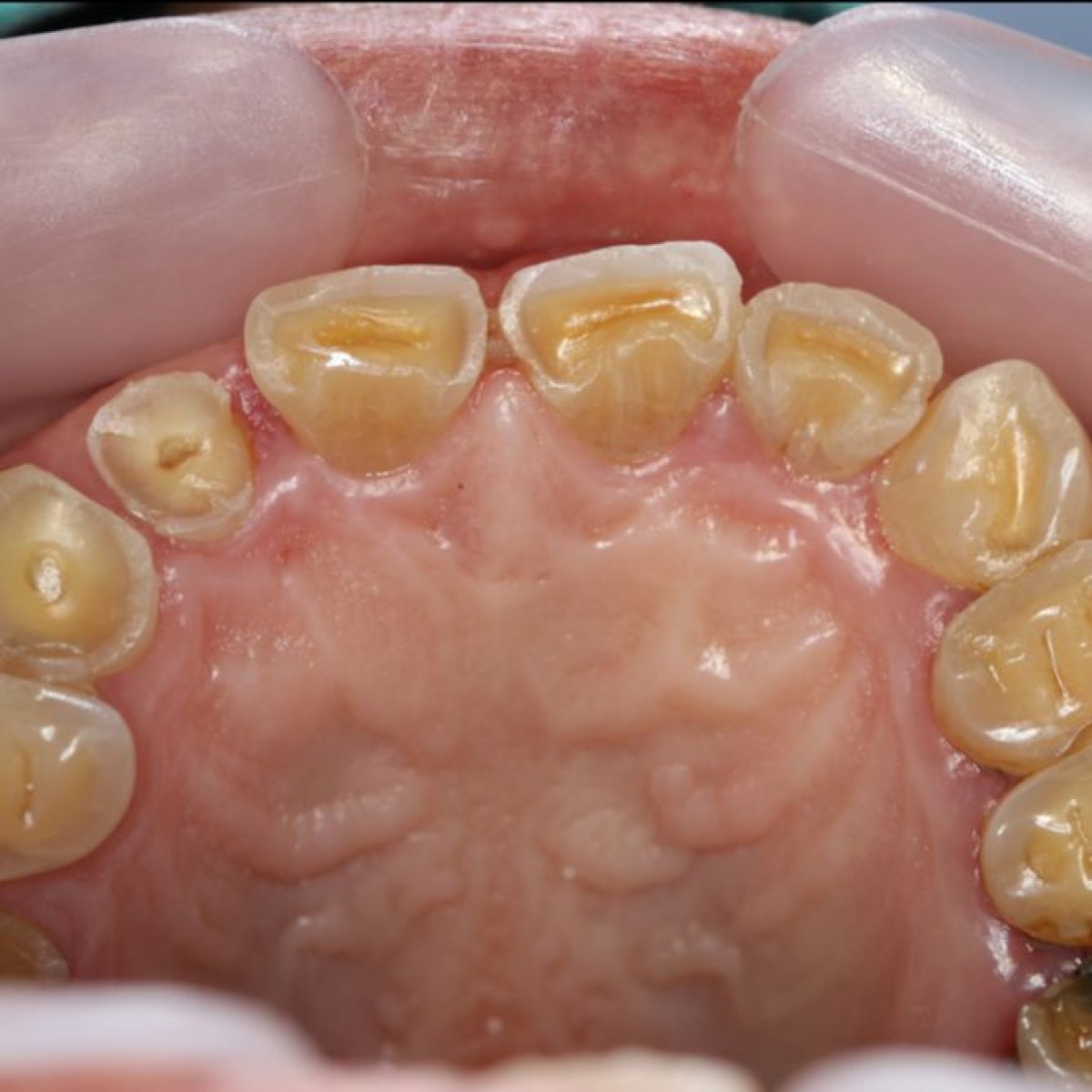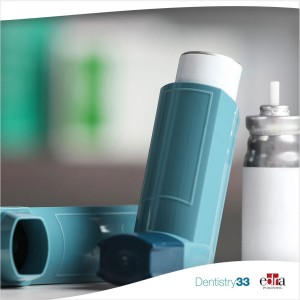
The role of resveratrol in the protection against dental erosion
Lara Figini
Dental erosion is the loss of mineralized tooth substance caused by exposure to acids, it is of non-bacterial origin and given its high prevalence and the cost associated with its treatment its prevention is fundamental and should focus on the factorial etiology. Among host-related factors, saliva is particularly important for its protective functions as it contains several proteins that contribute to the formation of the acquired pellicle (AEP), a bacteria-free organic layer formed by the selective adsorption of salivary proteins on the surface of tooth enamel.
In recent years, "acquired salivary film engineering" procedures have been adopted which involve the modification of saliva by immobilizing compounds that strengthen and increase the protective capacity of saliva against acids. Among these are polyphenols, organic compounds found mainly in plants and fruits, which provide protection against insects, ultraviolet radiation and microbial infections. Resveratrol (trans-3,4,5-trihydroxystilbene) is a polyphenol naturally produced by 72 different plant species, including grapes, pomegranates, peanuts, legumes and soybeans. Known for its beneficial effects on health, resveratrol has anti-glycating, antioxidant, anti-inflammatory, neuroprotective, anti-tumor and anti-aging properties.
In addition to its benefits for systemic health, literature data highlight that resveratrol can prevent dental caries thanks to its antimicrobial effect. Furthermore, it has been reported by several studies that the F3 fraction of Polygonum cuspidatum, containing mainly resveratrol and emodin, offers effective inhibition of acidogenicity in S. mutans UA 159. This effect was dose-dependent and evident at concentrations of 12, 5 µg/mL. Resveratrol in concentrations between 50 and 400 µg/mL reduces acid production and acid tolerance, inhibits the synthesis of water-soluble and water-insoluble polysaccharides, alters biofilm formation, and reduces the expression of virulence genes. S. mutans UA159.
Materials and methods
In a study published in the Journal of Dentistry, the authors determined the effect of different concentrations of resveratrol in protecting enamel from initial dental erosion in vitro.
Ninety samples of bovine enamel (4x4 mm) were divided into six groups:
Group 1 or control, phosphate-buffered saline (negative control; PBS);
Group 2 Elmex Erosion Protection™ (GABA International AG, Therwil, BL, Switzerland; pH 4.5 positive control);
Group 3, commercial solution (Elmex Erosion Protection™; positive control) and resveratrol in concentrations of 1 µg/mL;
Group 4, commercial solution (Elmex Erosion Protection™; positive control) and resveratrol in concentrations of 10 µg/mL;
Group 5, commercial solution (Elmex Erosion Protection™; positive control) and resveratrol in concentrations of 100 µg/mL;
Group 6, commercial solution (Elmex Erosion Protection™; positive control) and resveratrol in concentrations of 400 µg/mL.
Initially, samples were incubated in saliva for acquired film formation (250 μL, 1 hour, 37 °C, 250 rpm). Subsequently, the samples were incubated in the respective treatments (250 μL, 1 min, 37 °C, 250 rpm) and then reincubated in saliva (250 μL, 1 hour, 37 °C, 250 rpm). Finally, the samples were subjected to an erosion process by incubation in 1% citric acid (1 ml, pH 3.5, 1 min, 25 °C, 250 rpm). The percentage change in surface microhardness (%SMC) was evaluated using a microhardness tester. Data were analyzed using the Kruskal-Wallis and Dunn tests (p < 0.05).
Results
Treatments with Elmex™ and resveratrol (1, 10 and 100 µg/mL) demonstrate statistically significant enamel protection compared to the negative control, with no significant differences between the various concentrations of resveratrol. However, the group treated with resveratrol at higher concentrations (400 µg/mL) did not show a significant difference compared to the negative control.
Conclusions
From the data of this study, which must be confirmed in other similar works, it can be concluded that resveratrol at concentrations between 1 and 100 µg/mL is effective in preventing the loss of microhardness of the surface of dental enamel.
Source: https://www.sciencedirect.com/science/article/abs/pii/S0300571223003962?via%3Dihub
 Related articles
Related articles
Dentists Choice announces it insured 8,000 dentists in its first 150 days by leveraging Counterpart’s Agentic Insurance™ platform.
Young Specialties’ ClearDefense Silver Fluoride is a cutting-edge solution designed to provide relief from dental hypersensitivity while significantly reducing the risk of tooth discoloration.
News 14 April 2022
The American Association of Oral and Maxillofacial Surgeons (AAOMS) has deemed April as National Facial Protection Month in its campaign to call for use of safety equipment in sports. The campaign is...
The Blind Spot 13 March 2022
Coalition thanks lawmakers for passing Dr. Lorna Breen Health Care Provider Protection Act
Bill aims to help prevent stress burnout in health care workers
The ADA and 70 like-minded stakeholders praise Congress for passing the Dr. Lorna Breen Health Care Provider Protection Act, legislation that will give health care workers better access to education...
Oral Hygiene & Prevention 25 April 2023
The association between erosive toothwear and asthma – is it significant? A meta-analysis
The association of asthma with oral conditions such as dental caries, dental erosion, periodontal diseases and oral mucosal changes has been the subject of debate among dental practitioners. Existing...
 Read more
Read more
Digital Dentistry 05 December 2025
Artifact-resistant superimposition of digital dental models and cone-beam computed tomography images
Combining the maxillofacial cone-beam computed tomography (CBCT) model with its corresponding digital dental model enables an integrated 3-dimensional (3D) representation of skeletal structures,...
Editorials 05 December 2025
Rural dental residency program receives a lifeline from donor organizations
When federal funds to HSDM’s rural residency program went unpaid, a coalition of regional partners stepped up to secure the program’s future.
Products 05 December 2025
VideaHealth, the leading dental AI platform, recently announced the appointment of Austen Asadorian as Chief Revenue Officer. With two decades of experience scaling high-performing organizations,...
News 05 December 2025
VELMENI, a global leader in artificial intelligence (AI) solutions for dental care, and Jazz Imaging, an innovative provider of dental imaging systems, recently announced a strategic partnership...
News 05 December 2025
BIOLASE, the global leader in dental lasers, announced its participation in the 2025 Greater New York Dental Meeting (GNYDM), taking place November 28–December 3 in New York City.















